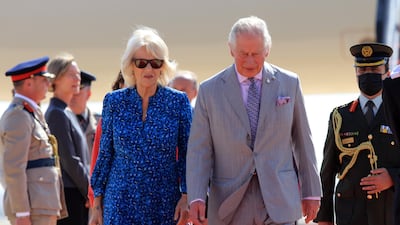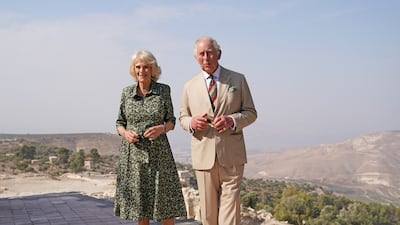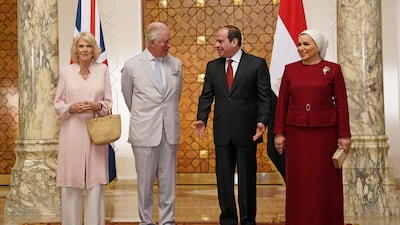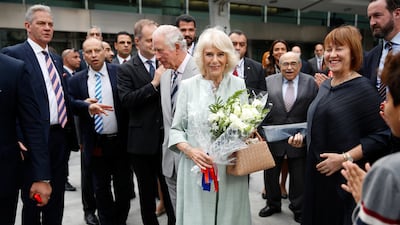In good times as well as bad, few diplomatic events have as much geopolitical significance as state visits. But for countries with royal families, even ones that have limited political power, coverage and popular appeal of their official trips can easily rival the presence of a nation's most senior politician.
We saw this special kind of diplomacy throughout the recent visit by Britain's Prince Charles and his wife Camilla to the Middle East. It was not an occasion to discuss geopolitics, rather one to re-emphasise the longstanding friendship between the UK and the region. And while it was not technically a state visit, it was significant. Prince Charles has deep ties with the Middle East and is seen as one of Europe’s most respected royals.
The trip is a sign that Britain values its friends. Politicians change, reflecting the modern, political phases of a country; royal families have a deeper, symbolic association with tradition and identity. The British royals are particularly illustrative of this fact. Constitutionally, they are largely ceremonial. Culturally, however, they are one of the most influential brands around, and a major part of the UK's soft power.
The current British monarch, Queen Elizabeth, has been a friend to the Middle East all her reign. Her first visit to the region was to Libya in 1954. Her first to the UAE was in 1979, when the country was just eight years old. She returned in 2010.
On the advice of doctors, she is now gradually pulling back from her full schedule of state occasions at the age of 95, paving the way for Prince Charles, the monarch-in-waiting, to take on the most important international royal visits. Like his mother, he, too, is a friend of the Middle East, although he has been away for some time; his last trip to the region was in 2006.
He was happy to be back, this time visiting Jordan and Egypt. On the last leg of his trip, the Grand Imam of Al Azhar in Cairo called him a "wise and responsible leader”, and the pair discussed issues such as the environment and interfaith dialogue. Charles, like many of the region's governments, has a longstanding interest in both. Charles's passion for the environment is so great – he is a leading global advocate of organic farming – that it has sometimes got him in trouble at home for overstepping the tight controls on the Royals' political neutrality.
But away from home, the mood this week has been one of friendship and optimism. Naturally, it is also one of responsibility. Camilla was clear that this visit was not a "holiday", but an important moment to affirm Britain's strong and enduring ties with the region. Nonetheless, after so many years away, the pair have said at the end of their tour that it was "absolutely brilliant", but also "too short".













